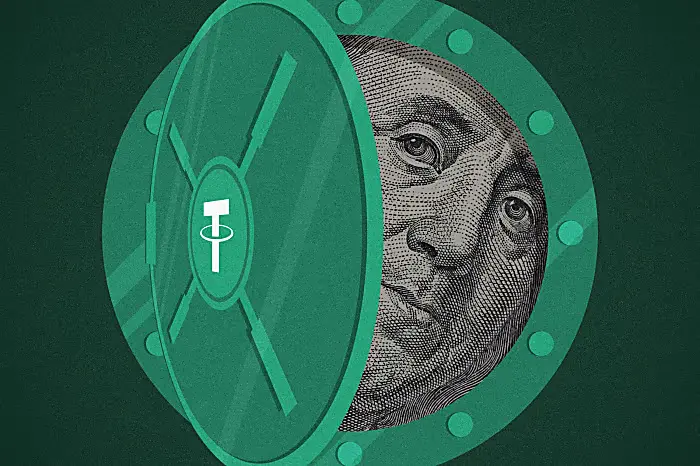The U.S. government has released a roadmap to mitigate cryptocurrency risks
This article is from the White House official website, original authors: Brian Deese & Arati Prabhakar & Cecilia Rouse & Jake Sullivan
Article translator: Nian Yin Si Tang, Odaily Planet Daily
2022 was a tough year for cryptocurrencies. In May of this year, a so-called "stablecoin" collapsed, triggering a wave of bankruptcies. Just a few months later, a major cryptocurrency exchange went under. Many everyday investors who trusted cryptocurrency companies—including young people and people of color—suffered significant losses, but fortunately, so far, the turmoil in the cryptocurrency market has had little negative impact on the broader financial system.
While cryptocurrencies may have a relatively short history, some of the behaviors exhibited by cryptocurrency companies and the risks they bring are all too familiar. As a government, our focus is on continuing to ensure that cryptocurrencies do not undermine financial stability, protect investors, and hold bad actors accountable.
At the direction of President Biden, we have been identifying the risks of cryptocurrencies over the past year and using the powers of the Executive Branch to take action to mitigate those risks.
First, experts from various departments of the U.S. government have developed the first framework for the safe and responsible development of digital assets while addressing the risks posed by digital assets. It is certain that the technology driving cryptocurrencies could provide faster, cheaper, and safer payment methods. However, this framework identifies clear risks.
For example, some cryptocurrency entities ignore applicable financial regulations and basic risk controls—both of which are measures to protect households, businesses, and the economy in the nation. Additionally, cryptocurrency platforms and promoters often mislead consumers, some of whom have conflicts of interest, fail to disclose adequately, or commit outright fraud. The cybersecurity across the entire industry is poor, allowing the Democratic People's Republic of Korea to steal over $1 billion to fund its missile program that threatens its existence.
Second, agencies are using their powers to strengthen enforcement when appropriate and issue new guidance when necessary. Just this month, banking agencies issued a joint statement calling for the separation of risky digital assets from the banking system. Government agencies have initiated (or are in the process of initiating) public awareness campaigns to help consumers understand the risks of purchasing cryptocurrencies. We encourage regulators to continue these efforts, including those aimed at addressing and limiting the exposure of financial institutions to risks associated with digital assets.
However, the events of the past year emphasize that we need to do more. Agencies have doubled down on efforts to combat fraud, including the spread of false or misleading statements regarding FDIC (Federal Deposit Insurance Corporation) insured crypto assets. While the U.S. has been a global leader in combating money laundering and terrorist financing, law enforcement agencies are allocating more resources to tackle illegal activities involving digital assets. In the coming months, the U.S. government will also announce priorities for the research and development of digital assets, which will help drive consumer protections by default in cryptocurrency technology.
Congress also needs to step up its efforts. For example, Congress should expand the powers of regulators to prevent companies from misusing customer assets—this harms investors and affects prices—and to mitigate conflicts of interest. Congress can also strengthen transparency and disclosure requirements for cryptocurrency companies so that investors can make more informed decisions regarding financial and environmental risks.
To assist law enforcement, Congress can enhance penalties for violations of illegal financing regulations and prohibit cryptocurrency intermediaries from tipping off criminals. It can provide funding to strengthen law enforcement capacity, including collaboration with international partners. By following the steps outlined by the Financial Stability Oversight Council in its recent report, including addressing the risks of stablecoins, we can limit the risks that cryptocurrencies pose to the financial system.
While Congressional action in these areas would be welcomed, Congress could also complicate our efforts and exacerbate the risks faced by investors and the financial system. Legislation should not pave the way for mainstream institutions like pension funds to dive headfirst into the cryptocurrency market. Over the past year, the limited exposure of traditional financial institutions to cryptocurrencies has prevented the turmoil in the cryptocurrency market from impacting the broader financial system. If legislation changes direction and deepens the connection between cryptocurrencies and the broader financial system, it would be a grave mistake.
The government wholeheartedly supports responsible technological innovation that makes financial services cheaper, faster, safer, and more accessible. However, to realize these benefits, new technologies need corresponding safeguards. Safeguards will ensure that new technologies are safe and beneficial for everyone—ensuring that the new digital economy serves the majority, not just a few. To implement the right safeguards, we will continue to advance the digital asset framework we have developed while working with Congress to achieve these goals.








